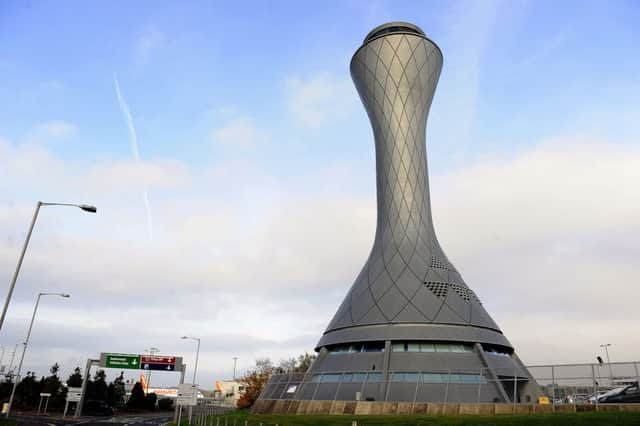Leader comment: Edinburgh airport parking charges are a rip off


Aside from the whopping average fee of £106 for a two-week stay, Scotland’s largest airport is the most expensive terminal in the country for drop-off charges, the so-called “kiss and fly tax”.
The report looked at the cost of a 15-minute stay in the drop-off area – Edinburgh was the most expensive in Scotland at £5, or 33p per minute. This is £1 higher than Glasgow, more than twice as expensive as Aberdeen and more than three times higher than Prestwick.
Advertisement
Hide AdAdvertisement
Hide AdEdinburgh also ranked joint fourth-highest in the UK overall, more expensive than London Heathrow and Gatwick.
The airport, now owned by Global Infrastructure Partners (GIP), has enjoyed significant investment since 2012. There are more gates, more shops, more eating places and the general interior and exterior of the terminal is much improved. Credit must also be given to chief executive Gordon Dewar and his team for luring a number of new airlines to the city, opening up the possibility of direct flights from Scotland to the world. Operators such as Etihad, Qatar and Turkish are now familiar sites on the Edinburgh tarmac.
At the same time, the airport has endured its share of problems. Most significantly, teething issues with the new security screening area persisted longer than they should have, and there are intermittent problems with baggage taking too long to be delivered to passengers. This contributed to the facility being named fifth worst in the world in a report by AirHelp, although the airport was very critical of the methodology.
But the issue that refuses to go away is the implementation of a drop-off charge.
When the charge was first introduced in October 2010, many passengers shrugged and told Scotsman reporters: it’s only £1.
But today that fee goes up to £5 if you’re forced to wait 15 minutes – and there are no guarantees it will not be increased further. Ironically, it is elderly and infirm travellers – who may be slower and less mobile – that are more likely to be hit with the higher fee.
This lack of choice is what irks travellers. The smell of being ripped off and not being able to do anything about it.
Passengers expect food and drink to be a higher price in an airport, and can choose to take their own snacks. They can also choose to park offsite or take public transport if they want to avoid a fee for a fortnight’s parking.
Advertisement
Hide AdAdvertisement
Hide AdBut the airport’s argument that passengers can avoid the drop-off charge by being deposited a mile from the terminal, in a free drop-off area, is disingenuous.
When it was first introduced in 2010 the “kiss and fly tax” was sold to passengers as helping to pay for a new drop-off facility. That has long since been completed and paid for.
It was also touted as an environmental measure, in that it would encourage travellers to use public transport. But insiders later admitted to The Scotsman that they knew this would make no difference as the fee was too low to dissuade people from using their car.
This charge is simply a tax to boost airport income. And a lucrative one at that. Around one million cars a year drive to Edinburgh Airport, bringing in more than £1 million annually for the owners.
The answer is simple. No-one wants to return to 2010, when cars were loitering for half an hour waiting for delayed flights.
But make the drop-off charge free for the first five minutes. £1 for ten minutes and then increase the charges steeply for those who linger.
After all, the airport is a captive market and a public utility. Passengers often have no choice but to fly from Edinburgh – it’s not as if they can always take their business elsewhere.